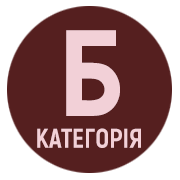THE ARTIST AND THE GOVERNMENT: AN ATTEMPT AT AN UNBIASED ASSESSMENT OF THE MUSICAL CULTURE OF SOVIET-ERA LVIV
DOI:
https://doi.org/10.32782/2310-0583-2023-49-02Keywords:
musical style, arrangements of folk songs, musical genres, Lviv regional school of composers, aesthetic assessmentAbstract
The article highlights the problem of a reasoned reassessment of the work of Lviv composers of the Soviet period, primarily of the first post-war decades. It is pointed out the difficulty of establishing obvious ideological markers of a number of works that were evaluated from the standpoint of socialist realism. Forms of compromise in the socioprofessional and creative activities of S. Lyudkevich, M. Kolessa, and A. Kos-Anatolskyi are considered, and their role in the preservation of national culture and the development of musical education is emphasized. The paradox of socialist realism as art with an impossible goal is considered. Forms of “artistic mimicry” are defined, thanks to which it was possible to overcome ideological limitations in creativity: giving a communist name or program to works with a different intention; replacing “dangerous” words with neutral ones or using ideologically correct texts with hints understandable to local listeners; the use of so-called “melodic allusions” associated with an ideologically “disloyal” work; the principle of concluding concert programs; creation of transcriptions and arrangements on themes from “unwanted works” as own arrangements of folk songs. It is proposed to approach the work of Lviv composers of the post-war period taking into account the historical and political conditions in which they had to create, and the ways in which they tried to protect themselves from the loss of spiritual identity.
References
Волинський Й. Композитор Микола Колесса. Львів : Книжково-журнальне видавництво, 1954.
Воронько П. Від Москви до Карпат. URL: https://www.cartalana.org/062pes-12.php (дата звернення: 24.06.2023).
Кияновська Л. Син сторіччя Микола Колесса. Львів : НТШ, 2003.
Кондратюк К. Втрати населення Західної України у 1939–1941 рр. Україна – Польща: важкі питання. Т. 5 : матеріали V міжнародного семінару істориків «Україно-польські відносини під час Другої світової війни», м. Луцьк, 27–29 квітня 1999 р. С. 151–158.
Львівський державний обласний центр народної творчості і культурно-освітньої роботи. Історія створення. URL: http://www.cnt.lviv.ua/main/42 (дата звернення: 24.06.2023).
Луцький О. Львів під радянською окупацією 1939–1941 рр. Український визвольний рух. Львів, 2006. Зб. 7. С. 89–119.
Мазепа Л. Перетворення в культурі і мистецтві західних областей УРСР (1939–1941). Сторінки музичного минулого Львова. З неопублікованого. Львів : Сполом, 2001. С. 78–112.
Павлишин С. Спогади про А. Кос-Анатольського. Анатоль Кос-Анатольський у спогадах сучасників. Львів : Аз-Арт, 2009. С. 23–27.
Dobberstein Marcel, Musik und Mensch. Grundlegung einer Anthropologie der Musik, Dietrich Reiner Verlag, Berlin 2000.
Golomstock І. Totalitarian art in the Soviet Union, the Third Reich, Fascist Italy, and the People’s Republic of China. translated from the Russian by Robert Chandler. London: Collins Harvill, 1990.
Hall Edward T. Beyond culture, New-York a.o., Anchor Books Doubleday, 1989.
Mehner K., Art. Sozialistischer Realismus in: MGG Online, hrsg. von Laurenz Lütteken, New York, Kassel, Stuttgart 2016ff., veröffentlicht Januar 2022. URL: https://www.mgg-online.com/mgg/stable/401306.







